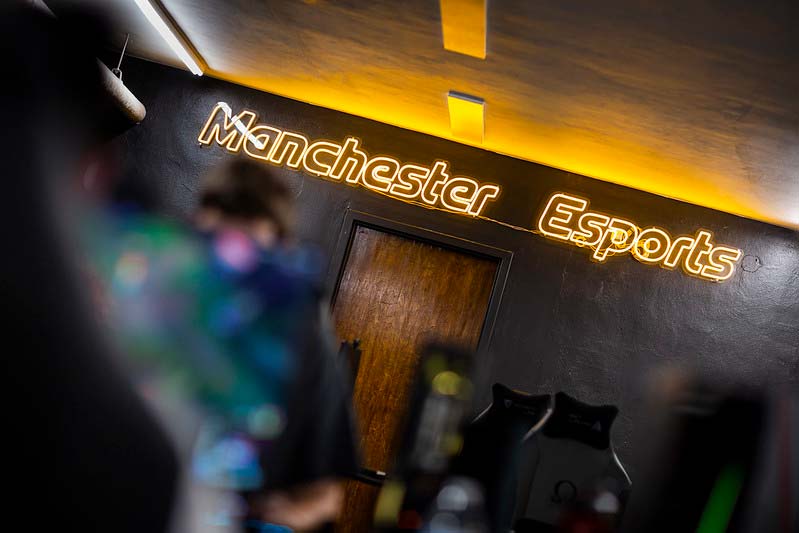 The esports teams practice their skills in the esports arena located in lower Calvin Ulrey.
The esports teams practice their skills in the esports arena located in lower Calvin Ulrey.
Photo provided by MU Esports
Manchester’s Esports Teams Prepare for Tournaments
Devon Allen
The Manchester University esports teams are not taking it easy. While Week 1 of the GLEC (Great Lakes Esports Conference) Fall 2022 season began on Sept. 3, some players have been preparing much longer. The Manchester University esports Smash team has been on a dominant streak and are looking to win their fourth consecutive trophy GLEC trophy. Over the past couple of weeks, the esports teams have earned some very strong results in conference play, with the League of Legends and Super Smash Bros teams improving to 3-0.
The Manchester University esports teams that are competing competitively in the Great Lakes Esports Conference in the fall are the Super Smash Bros (Smash), Valorant and League of Legends teams. As of right now, the Super Smash Bros and League of Legends teams are undefeated, and Valorant is 2-1. While the Smash team has had a lot of continuous success in past conference play, the Valorant and League of Legends teams seem to also have some bright futures ahead of them, as they have been performing well.
It takes a lot of commitment and integrity to be on the esports teams. Competitors on the Manchester University esports teams are student athletes who take both school and gaming very seriously. “Schoolwork always comes before esports,” said Aly Buffenbarger, a Valorant competitor, when they spoke about the struggles between balancing schoolwork and playing esports for the university. “It is difficult to put classes first but it’s necessary, to be a part of the team.”
Another Valorant player, Alissa Bickerstaff, also mentioned the strenuous practice schedule and the difficulties of balancing not only school and esports but also a full-time job.
Abby Thatcher, a Smash player, also made it known that the late-night practices can be difficult to manage, but she prioritizes school.
Jacob Nusbaum, a League of Legends player, agrees. “We are told to prioritize academics over practice,” he said.
Not only do esports provide a competitive environment but video games in general also provide a sense of community and place to make friends. When these students were asked why they chose to participate in esports at Manchester, they all gave similar answers to each other. It does not matter what game is being played: the feeling of acceptance and community is all there.
Bickerstaff said that it helped her make more friends on campus.
Buffenbarger got into video games because of their father, but they also noticed that joining the esports team was “a quick way to find friends who also enjoyed playing games.”
Nusbaum was offered a scholarship, but also recognized Manchester University esports teams as “a place to make friends and have fun in a competitive environment.”
Thatcher has even used esports to be a caster for the Saturday morning GLEC competitions.
Esports can be used as an outlet to relieve stress as well. The Manchester University esports program has a positive impact on everyone involved and is another spot on campus to make friends and build strong bonds.